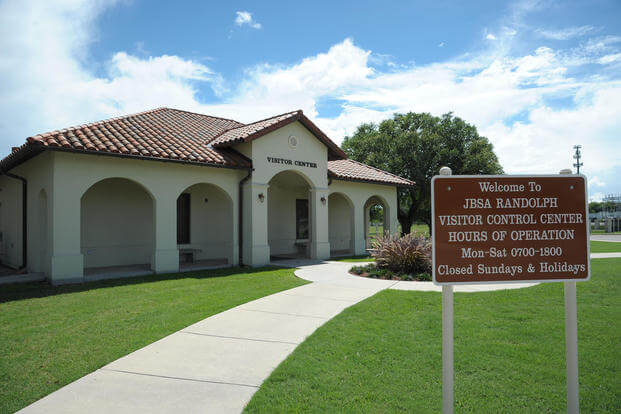A medical barracks at Joint Base San Antonio, Texas, is still closed, forcing 150 patients and staff to be relocated across the installation, after a bacteria that can cause pneumonia was detected in the plumbing nearly five months ago.
In total, 100 residents and 50 employees at Liberty Barracks, where military patients at the nearby medical center live, have not been allowed back in the building since the discovery of the Legionella bacteria was publicly announced on Sept. 30.
"Residents and staff from Liberty Barracks continue to live and work from other barracks and facilities on [Joint Base San Antonio]," said Robert Strain, a spokesman for the base. "Civil engineering crews have been replacing sink fixtures throughout the building and flushing the water system three times per week."
That would mean that the water system has been flushed more than 50 times since the Legionella was found.
After base officials announced, nearly five months ago, that the bacteria had been identified during routine water testing, all of the patients were relocated including those from the base's Behavioral Health Clinic.
Some of the former residents may also be especially susceptible to catching Legionnaires' disease, a severe type of pneumonia caused by coming into contact with Legionella bacteria, since they are already undergoing medical care. It spreads through microscopic droplets of water and can be transmitted through drinking water, swimming pools and cooling towers in air conditioning systems, according to the Mayo Clinic.
Those who smoke, are 50 years or older, or have weakened immune systems are most susceptible to the illness. Strain told Military.com on Monday that there have been "no confirmed cases of Legionnaires' disease or Legionella-related infections among residents or staff at Liberty Barracks."
This is not the first time Liberty Barracks has detected Legionella. In 2021, the building was evacuated after the bacteria was found in the building's plumbing, according to a press release.
In October, Liberty Barracks went under a "super-chlorination" process to destroy the bacteria, but testing after the procedure showed that Legionella may still have been present.
Strain told Military.com that Joint Base San Antonio civil engineers identified a possible biofilm developing in the building's sinks and water softener filtration system, leading them to replace all faucets throughout the barracks, as well as the water softener.
Work is expected to be complete by the end of February, according to Strain. Base leaders and civil engineers will decide how and when residents and employees can move back to Liberty Barracks after evaluating the renovations, something that could happen as late as mid-March.
"No one will be moved back into the building until those leaders are satisfied with the treatment and test results," Strain told Military.com. "Right now, we expect to start moving personnel back into Liberty Barracks in mid-March, but that may change as testing and evaluation continues."
The base's Behavioral Health Clinic is still being run out of temporary facilities and will move back once it's cleared for residents and employees.
Liberty Barracks, a 216,000-square-foot facility capable of housing nearly 400 patients, was opened in 2012 and was designed as a place for service members to stay while they receive treatment at the base's medical facilities.
-- Thomas Novelly can be reached at thomas.novelly@military.com. Follow him on Twitter @TomNovelly.
Related: Legionella in Water at Joint Base San Antonio Medical Barracks After Weeks of Failed Cleanup Efforts












